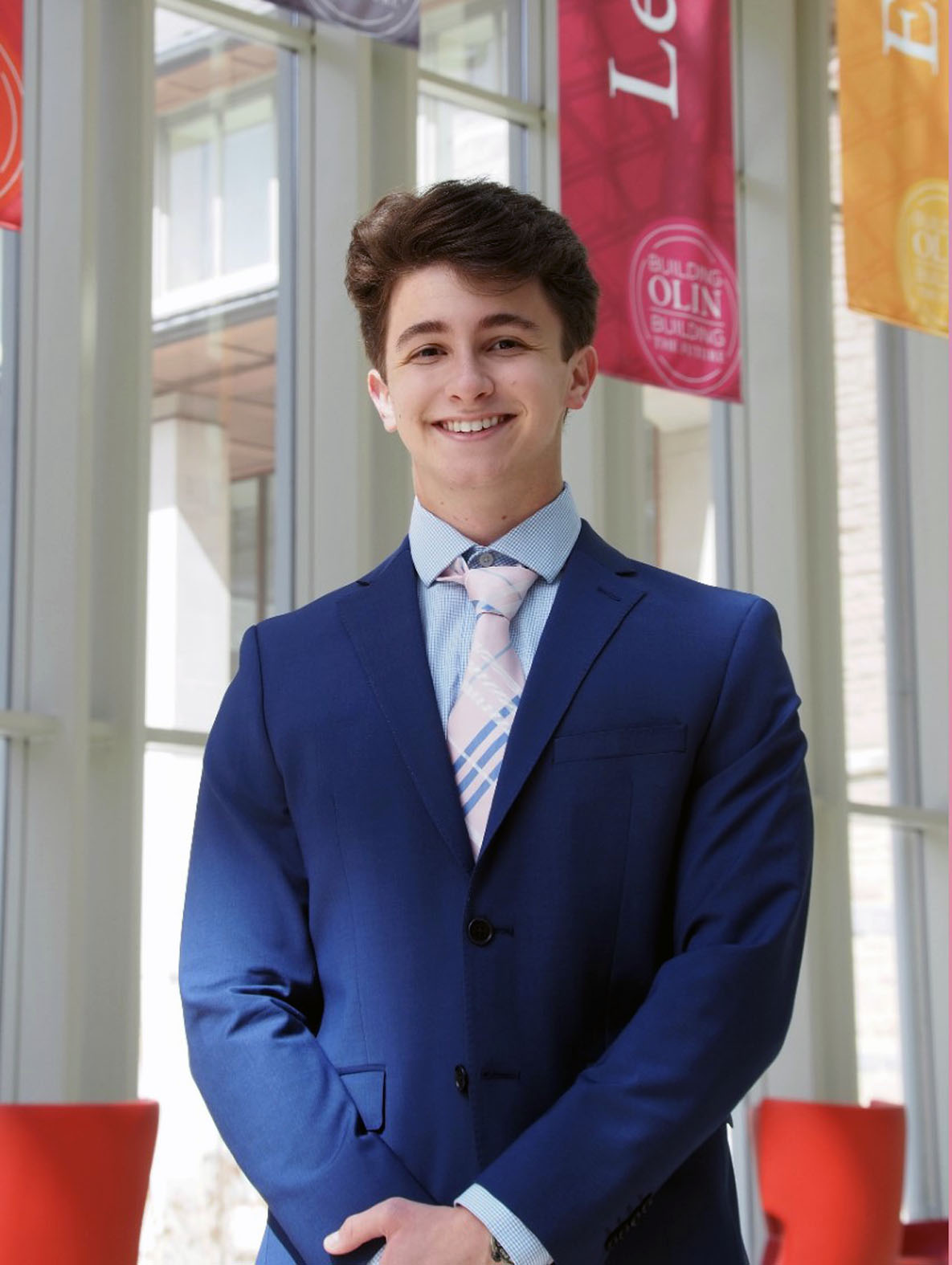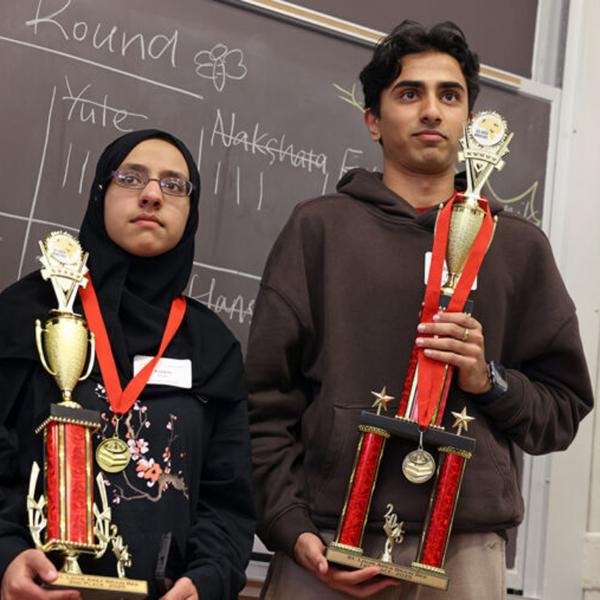Bear Studios is an undergrad-run organization started by students from Washington University in St. Louis in 2014.
The organization connects undergrads from different areas of study including STEM fields, finance, design, and more with opportunities to freelance and provide startups and established businesses with strategy, design and technology solutions. Clients range from major universities and national healthcare systems, to software and biomedical companies in St. Louis and beyond. Bear Studios’ mission is to “equip diverse clients with the tools they need to succeed by leveraging undergraduate talent with an innovative and entrepreneurial approach to problem solving.”
Executive Director Emily Su is a senior studying Finance, Economics and Strategy with a minor in Philosophy. She joined Bear Studios her first year and became an Executive Director during sophomore year. After graduation, she plans to be in Investment Banking.
Consultant Lucas Abrams is planning to major in Psychology with a second major in Finance and minor in Computer Science. He joined Bear Studios during his first year as a Strategy Consultant. Now a sophomore, he’s a Senior Consultant in the Partnership branch.
How do you recruit undergrads to become consultants for Bear Studios?
Emily: Basically, we blast all of our networks. Because our consultants are across all schools within WashU, it's a lot easier for us to have a very broad network. Applicants go through a typical interview process. Once they are hired, they are paid by the project.
The way we're structured is we have two Executive Directors, and then we have Partners (people who manage our projects). Under that, we have Senior Consultants, and under them, regular Consultants who only work on projects.
We currently have about 20 undergrad consultants on our team. The most important quality we look for in our consultants is a self-starting mindset. We're all students and we know that this is a learning process. Every single time we start a project, we know we're going to run into something that we don't know how to do. Good communication skills, resourcefulness, and willingness to keep working on creative solutions are the most important attributes in a consultant.
How do you decide which consultants to pair with clients?
Emily: Usually the two Executive Directors onboard the client and run their intake meeting. After that, they determine what the client needs and choose a couple of consultants who are particularly good at that specific deliverable or give it to a couple of people who haven't had as much experience. We’ve found that the best way to create these teams is to have someone who's extremely experienced as well as a younger consultant -- maybe a first-year or sophomore who just joined. Having that mix within the team has proven to be very valuable for clients as well.
How do you find clients for Bear Studios?
Emily: We cold email and contact local incubators within St. Louis to reach out and ask how we can help; we also get many of our clients through word of mouth. For example, recently, we had someone from WashU reach out to partner with us for the Equalize Pitch Competition, a competition for women in STEM to try to raise funding for their new innovations. They were able to blast our contact information out to their competitors, who then reached out to set up their own projects with us. Faculty members also tend to be helpful, especially when they give our information to other professors or researchers.
We often help entrepreneurs with their logos, or professors and faculty members with their lesson plans, or help them lay out pitch decks. Our business school students are really good at that as well, but our design students are exceptional at having an eye as to what the client might need. Having team members from across disciplines is key to our success.
I found out about your organization through Associate Professor of Biology Arpita Bose, who says “I am excited to work with Bear Studios and am so proud to be working alongside our amazing WashU undergrads in the consulting arena! There is no bigger honor!” How do you decide which faculty members to recruit for the Advisory Board?

Lucas: We have three branches, where senior consultants work in partnership, development and publishing. Partnership, as Emily was talking about, is where we're reaching out to clients in the St. Louis area, but also, within our school’s faculty, which is where I found Professor Bose. I saw that Professor Bose is working on microbial capabilities, and how that can impact climate change and sustainability. These are very relevant ideas that potential clients in the area could be working with. I reached out to her and asked her to join the advisory board. Faculty advisors typically serve on the board for the extent of a specific project with a client.
On average, how many projects do you think your organization is managing at a time?
Emily: Four to eight, on average. Mostly people who are from St. Louis and the Midwest, but we are hoping to expand to the coasts as well.
What do you personally get out of working for Bear Studios?
Emily: I came into the company at a pivotal time when we were changing the structure and ownership. Learning about the value of Bear Studios and what it was like to buy into a company, then run this company, and learn the ins and outs of the finances and operations is what really sparked my interest in finance to begin with. Beyond that, I think it's a very interesting dynamic to manage students who are close to my age. In the corporate world, I will likely be managed by people who are 20 years older than I am and will have to do whatever they tell me. Here, we all see each other outside of Bear Studios meetings. We go out, and many of us are involved in other extracurriculars together. It teaches me to be a stronger leader and a stronger team manager that I don't think I would have learned in a different setting.
Working with clients who are trying to bring a certain idea to life is really interesting because you know that you're actually having an impact on them. For example, we've helped a couple of people with pitch decks for competitions, and many won a lot of money without any equity being requested from them. Clients are so thankful, saying “we couldn't have done this without you!” We're actually helping people pursue their dreams.
Lucas: Something I've learned from Bear Studios is how to work well in teams. The advantage of being in a small and tight-knit organization like this is that it doesn't really matter what position you're in… you'll pretty much get out of it what you put into it, and you can wear a lot of hats. As a consultant, there are some manual tasks you can be doing, but you can pretty much be brainstorming and working alongside with the directors on big picture ideas too, which I find really exciting.
Visit the Bear Studios website to learn more about their services and how to get involved.





